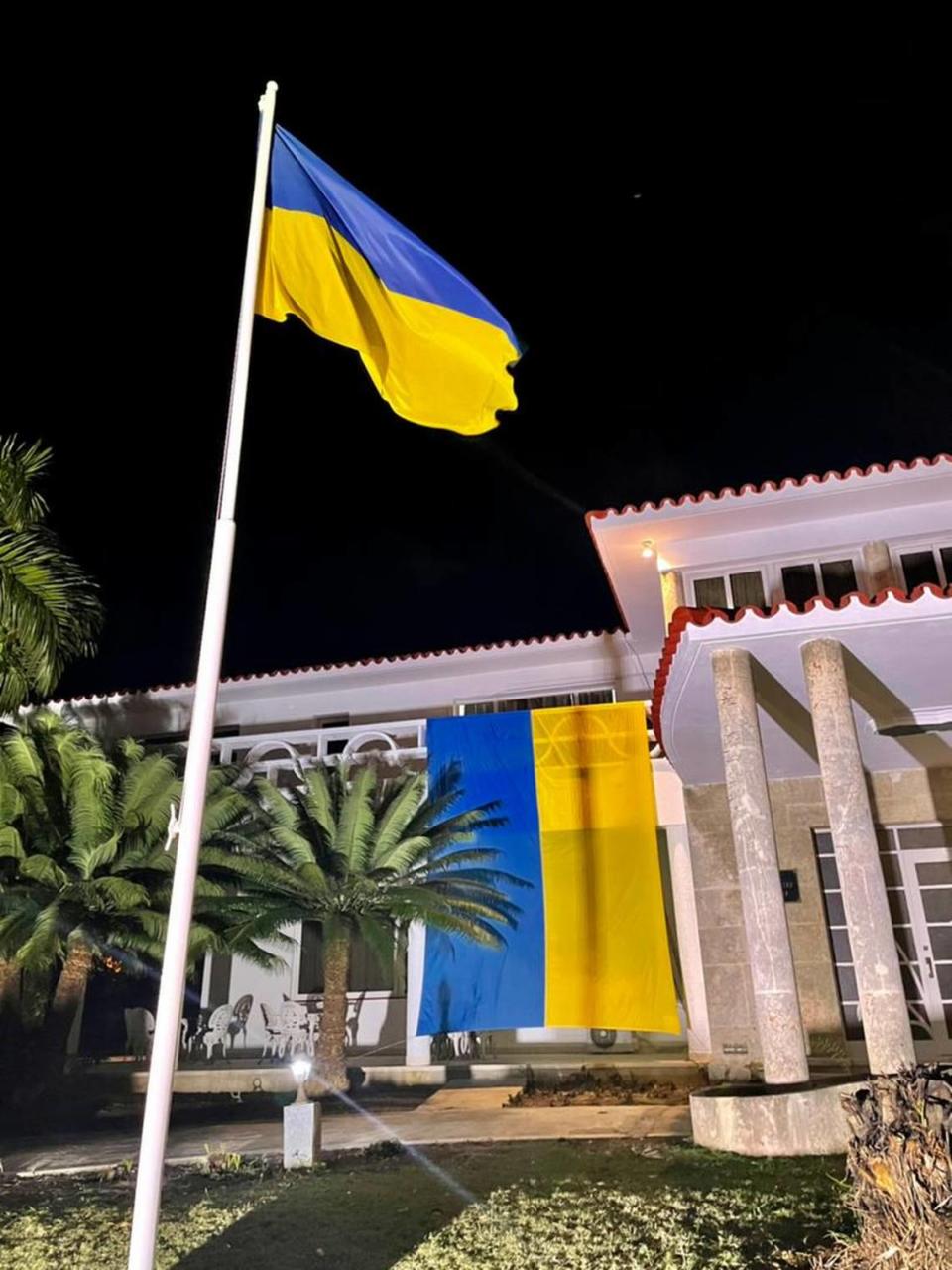Ukraine’s top diplomat in Havana: Cuba’s vote at the U.N. ‘gives us cautious hope’
The top Ukrainian diplomat in Havana said Cuba’s refusal to join Russia and vote against a United Nations resolution condemning the invasion of Ukraine is a sign that diplomatic action works and a development that gives him “cautious hope” that the island’s government, a staunch Russian ally, would do more to stop the war.
In written answers to questions sent by the Miami Herald, the chief of mission at Ukraine’s Embassy in Havana, Oleksandr Kalinchuk, said he believes Cuba’s abstention vote on Wednesday was likely a response to a protest note that his government sent to Cuban authorities last weekend.
Ukraine’s Foreign Affairs Ministry “expresses its strong protest against the statements of the Government of Cuba in support of Russia’s aggression against Ukraine,” the country’s deputy foreign minister, Emine Dzheppar, tweeted in Spanish on Sunday. She said her government called on Cuba “to urge Russia to put an end to this aggression.”
Cuba so far has avoided either condemning or openly supporting the Russian invasion. Its public statements have shifted the blame for the attack onto the United States and have portrayed Russia’s aggression as self-defense. Domestically, Cuban state media have aggressively promoted Russian disinformation and propaganda, relying almost exclusively on RT coverage, and censoring key developments, such as Cuba’s own abstention vote at the U.N.
Kalinchuk declined to comment on the state of diplomatic relations between Ukraine and Cuba, but said he was open to discussing the current situation in his country with Cuban authorities.
Here is what Kalinchuk said in response to the Herald questions. His answers have been slightly edited for style and clarity.
Has the Cuban government responded to your protest note? Could you describe what the note says?
I believe that the position of the Cuban delegation’s vote in the U.N. General Assembly is the Cuban government’s response to our protest. And this response gives us cautious hope.
Have there been diplomatic contacts with your Cuban counterparts to discuss the Russian invasion?
I have had two meetings at the Cuban Foreign Ministry. However, none of the above-mentioned meetings may be called a discussion. But I would be happy to discuss the current situation with the Cuban side, at any time.
Do you think Cuba could do more diplomatically to find a solution to the conflict? Are you aware of any diplomatic efforts by the Cuban government in that regard?
I can only guess the insane pressure that Moscow is putting on the Cuban government. However, there is some important point not to forget — diplomacy is not one of the exact sciences, therefore there will always be room for maneuver. And I am glad that the Cuban side is taking this opportunity, as we see from the vote in the U.N. General Assembly.
So, I hope that the Cuban government will go even further and will call on Moscow to withdraw its troops from my homeland, the only right path to reaching peace today.
Do you have an estimate of how many Cubans live in Ukraine? How many Cubans might be trapped right now in the country? Are you aware of any efforts by the Cuban government to help evacuate those Cubans?
During the Soviet times and up until 2014, we had a significant flow of Cubans entering Ukraine — both students and professionals (especially engineers), and ultimately tourists. Since 2014, no Cuban student has applied for a visa to study in Ukraine. A relatively small number of Cubans live in Ukraine.
What do you think about Cuban state media coverage of the invasion?
The Cuban media has many “peculiarities,” but we do live in a time when, thanks to the Internet and other means of communication, the truth can no longer be hidden. Videos taken at the scenes of numerous crimes committed by Russian occupants, live broadcasts, testimonies of victims and witnesses: all this information can be found and shared with others. And hundreds of calls and emails of support we keep getting from the Cuban people prove that.
No matter what media we turn to here in Cuba, the answer is always the same — ask permission through the Cuban Foreign Ministry. At the moment, we are working on ways to share our point of view.

I saw a tweet by the Ukrainian Embassy in Havana asking Cubans to send their messages of support via email to free the phone line. Can you say a bit more about those messages of support? And in general, how is the local population reacting to the war?
Oh, this is the most enjoyable part of the interview. Cuban people — you are truly wonderful!
During all these hard days, we keep receiving hundreds and thousands of calls and emails, as well as a huge number of texts and WhatsApp messages. We have also received numerous messages of support at the official accounts of the Embassy of Ukraine on Facebook and Twitter.
We are truly touched by receiving calls from ordinary people who want to express their support for the Ukrainian people and condemn Russia’s actions. To be honest, in the beginning, we were quite sure though that the number of calls and messages would decrease day-by-day, but it turned out to be a wrong assumption. It seems that our embassy is gradually becoming a call center.
This story has been updated to clarify that Kalinchuck was referring to diplomatic action and not pressure in talking about Cuba.

